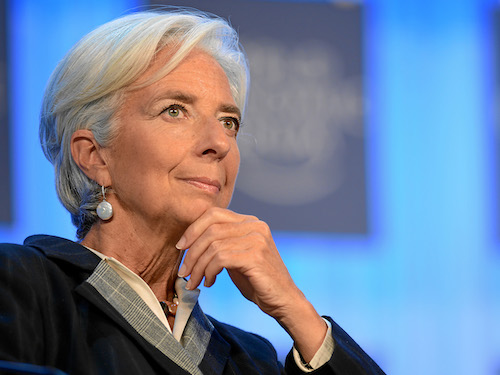
The slate for the top positions in the European Union has been released, and the process of selecting candidates was nearly as discouraging as the nominees chosen. Ursula von der Leyen, who was chosen to become the next president of the European Commission, has particularly concerning views on economics. So, too, does Christine Lagarde, who would move from the IMF to the European Central Bank.
Nomination chaos: The nomination ultimately ignored the agree-upon process of Spitzenkandidat: Each of the European Parliament’s political groups would choose their candidate for European Commission president as their lead candidates. However, Hungary sidelined two candidates, while the center-right European People’s Party chafed at being given an inferior role in a deal brokered by Angela Merkel. To quell the revolt, Merkel and French President Emmanuel Macron hammered out a new list of candidates in a deal one Italian newspaper called “a return to the Franco-German monopoly über alles.”
Outgoing European Council President Donald Tusk, who was present but reportedly played little role in the negotiations, boasted of achieving “perfect gender balance. I am really happy about it. After all, Europe is a woman.” However, it lacks geographical balance: Not a single Eastern European holds a leadership post.
The four top candidates, and the president of European Parliament, are:
Ursula von der Leyen has been nominated to succeed Jean-Claude Juncker as president of the European Commission. She grew up in Brussels, the daughter of Ernst Albrecht, who worked in the EEC and EC. She also lived in the United States for four years, while her husband taught at Stanford University. She went on to become the only member of cabinet to survive Angela Merkel’s entire tenure in office.
However, von der Leyen, “who has been dogged by misspending and mismanagement allegations in Berlin,” has taken a number of positions that should be of concern. She spearheaded a failed initiative to compel German companies to appoint a quota of at least 40 percent of women to all corporate boards by 2023. She supported the introduction of a national minimum wage. As Family Affairs Minister, von der Leyen tripled government-funded child care and guaranteed every family in Germany a daycare spot. She introduced generous, guaranteed paid leave for mothers and added an additional two months of paternity leave for a total of 14 months.
On social issues, von der Leyen has warned that if Germany’s demographic crisis is not solved the nation will have to “turn out the light,” and she was one of the few Christian Democrat politicians to publicly campaign for same-sex marriage.
She will need to secure 751 votes on July 15 to win the seat.
Charles Michel, interim prime minister of Belgium, has been tapped to become European Council president. Michel’s governing coalition fell apart last December when his partners, the New Flemish Alliance (N-VA), refused his pressure to sign the UN’s Global Compact for Safe, Orderly, and Regular Migration.
Christine Lagarde, the IMF chief who will lead the European Central Bank (ECB), was convicted in 2016 of negligence in awarding a $417 million government contract in 2008 that led to the misuse of public funds. However, she avoided a criminal sentence and persevered at the IMF.
Josep Borrell who has been selected to become High Representative of the Union for Foreign Affairs, European Union, and Cooperation, is a member of Spain’s socialist party, PSOE.
David-Maria Sassoli, a former Italian TV journalist and a socialist member of the Democratic Party, has been elected European Parliament president for the next two-and-a-half years. Sassoli, who voted with the Progressive Alliance of Socialists and Democrats 98 percent of the time, has encouraged the EU to lighten its own carbon footprint. His enthusiasm for Brussels’ meddling is evident, as he has said, “Europe will be stronger only with a Parliament which plays a more important role.” He asked members to “make the Parliament a protagonist of a true European democracy.” He concluded, “We need to strengthen our capacity.”
At the Acton Institute’s Religion & Liberty Transatlantic website, Ángel Manuel García Carmona gives additional biographical and philosophical details about the four lead candidates (von Der Leyen, Michel, Borrell, and Lagarde – the last of which includes some particularly disconcerting economic positions on Universal Basic Income, the VAT tax, and negative interest rates).
Carmona summarizes:
The new European bureaucracy has only changed the names and faces. There is no intention to slow or stop EU centralization and economic central planning – nor to lift its opposition to decentralization, human dignity, Christian tradition, and free markets.
Read his full news article here.
(Photo: Christine Lagarde. Photo credit: World Economic Forum. This photo has been cropped. CC BY-SA 2.0.)

